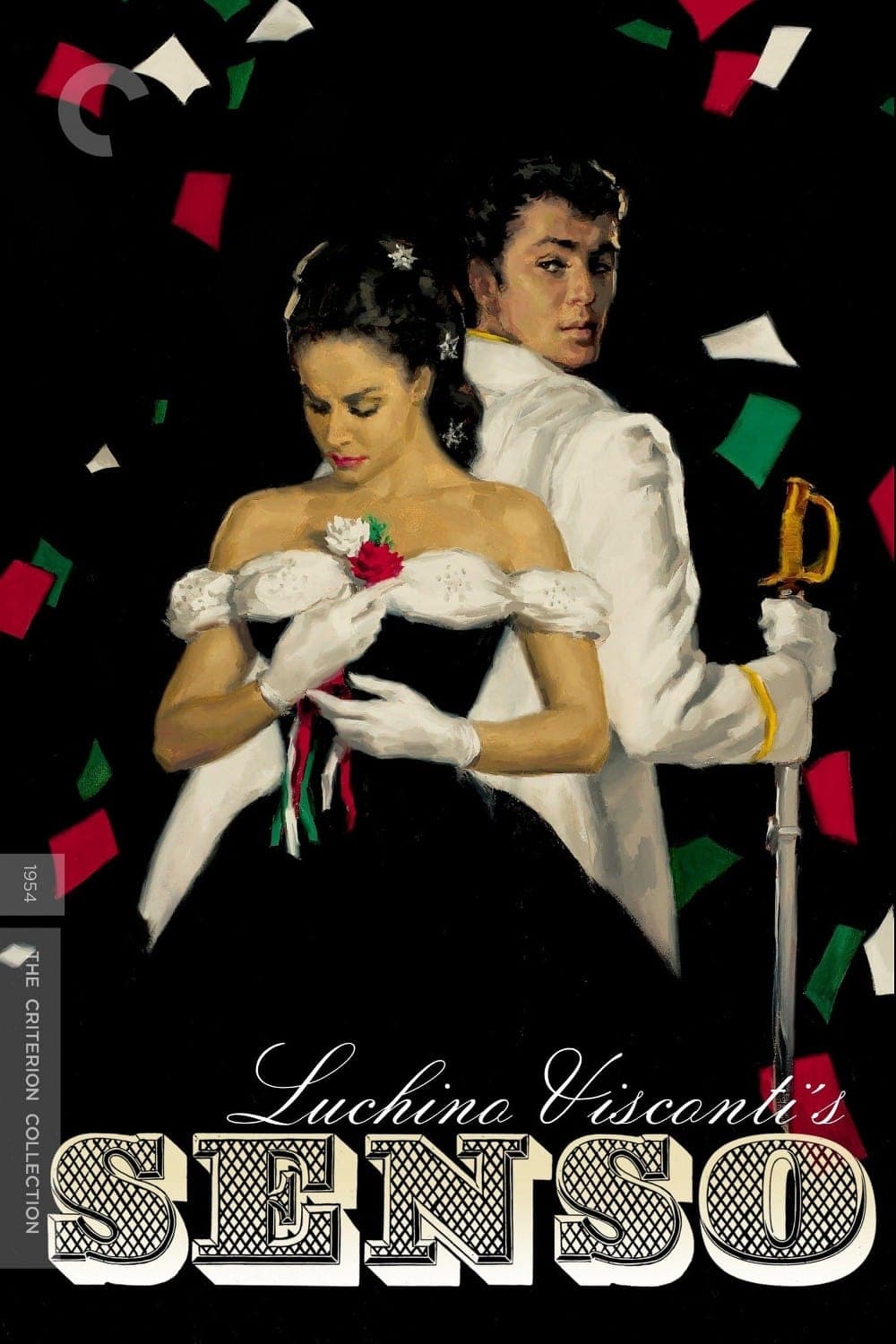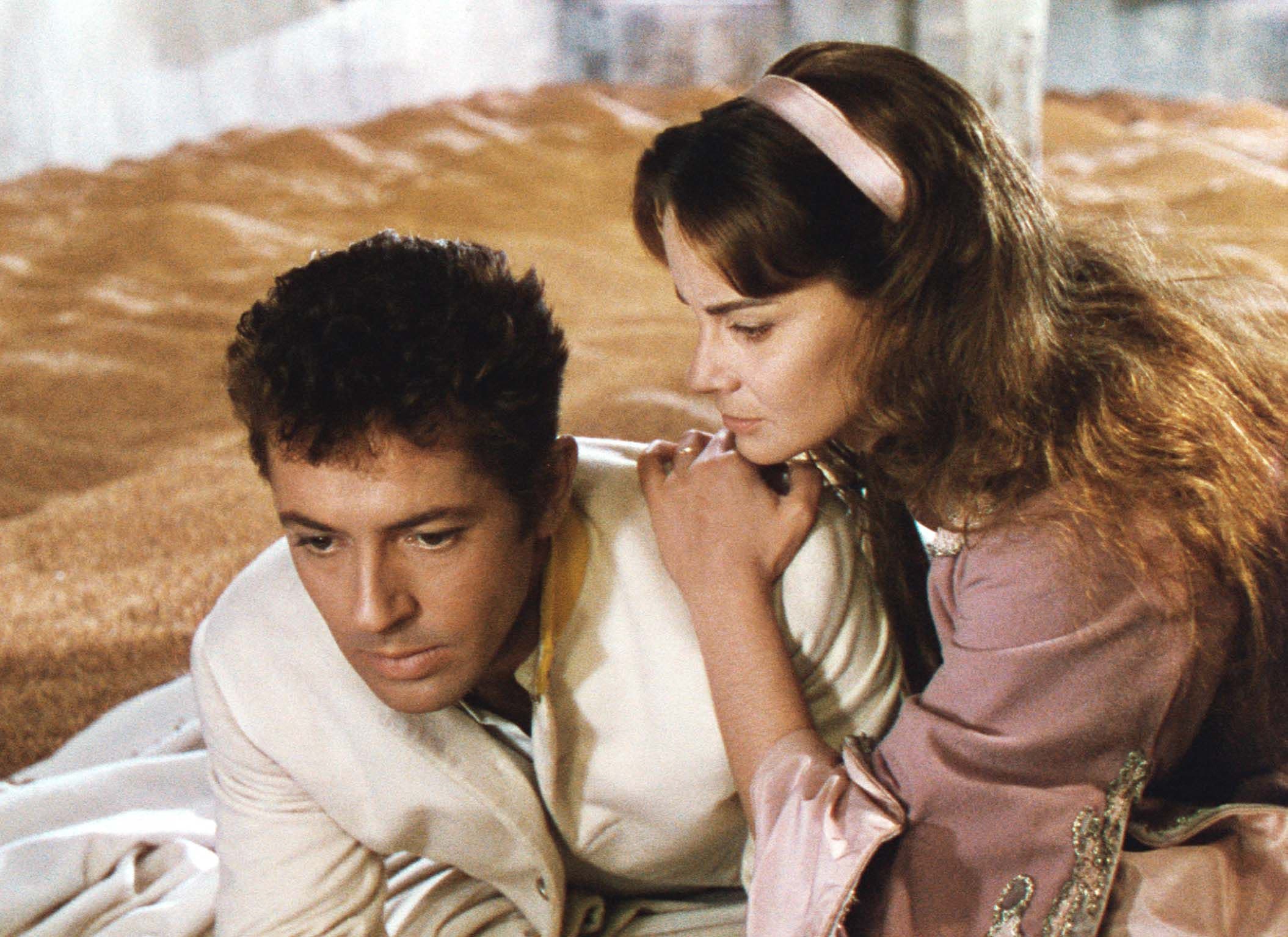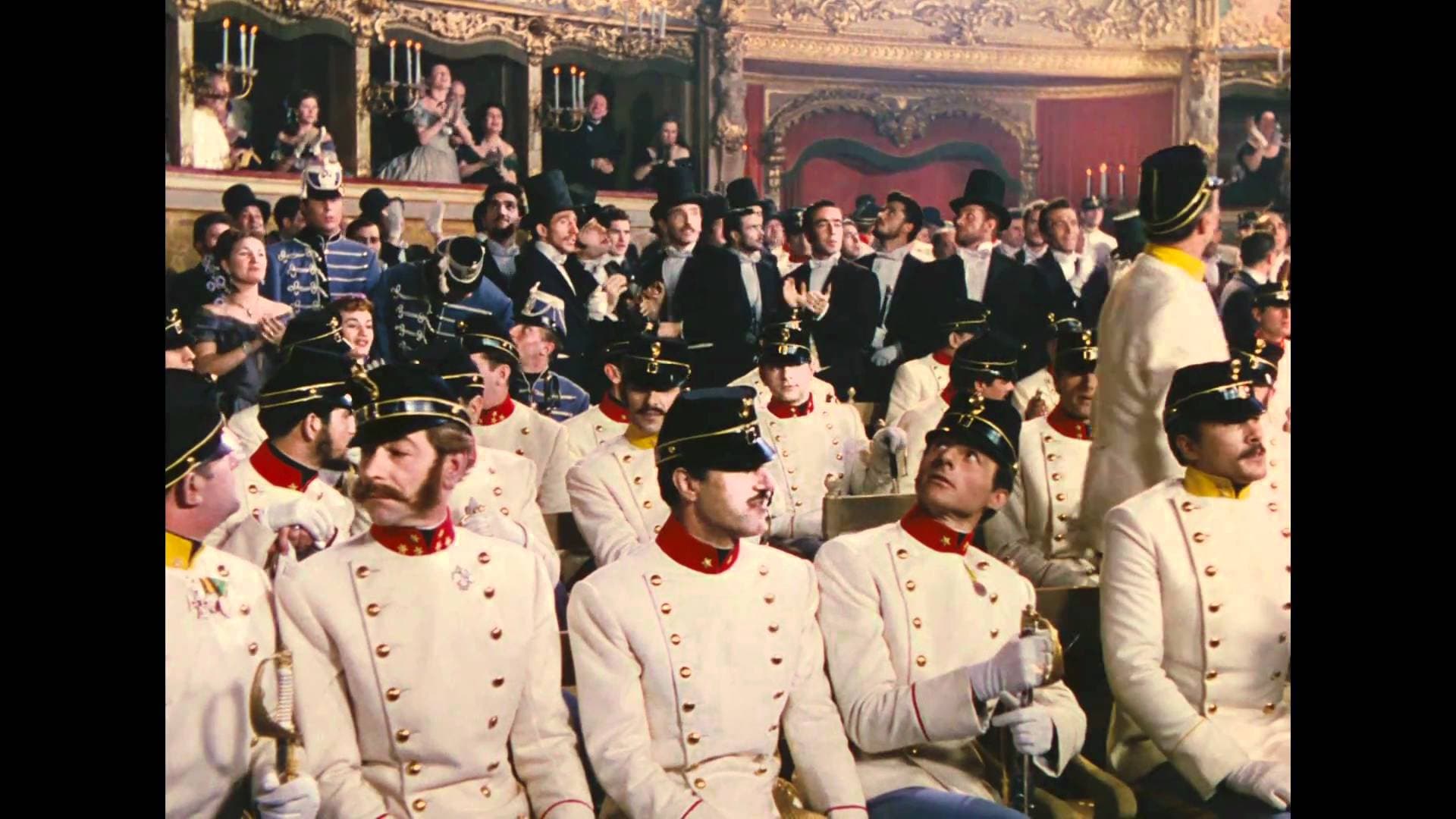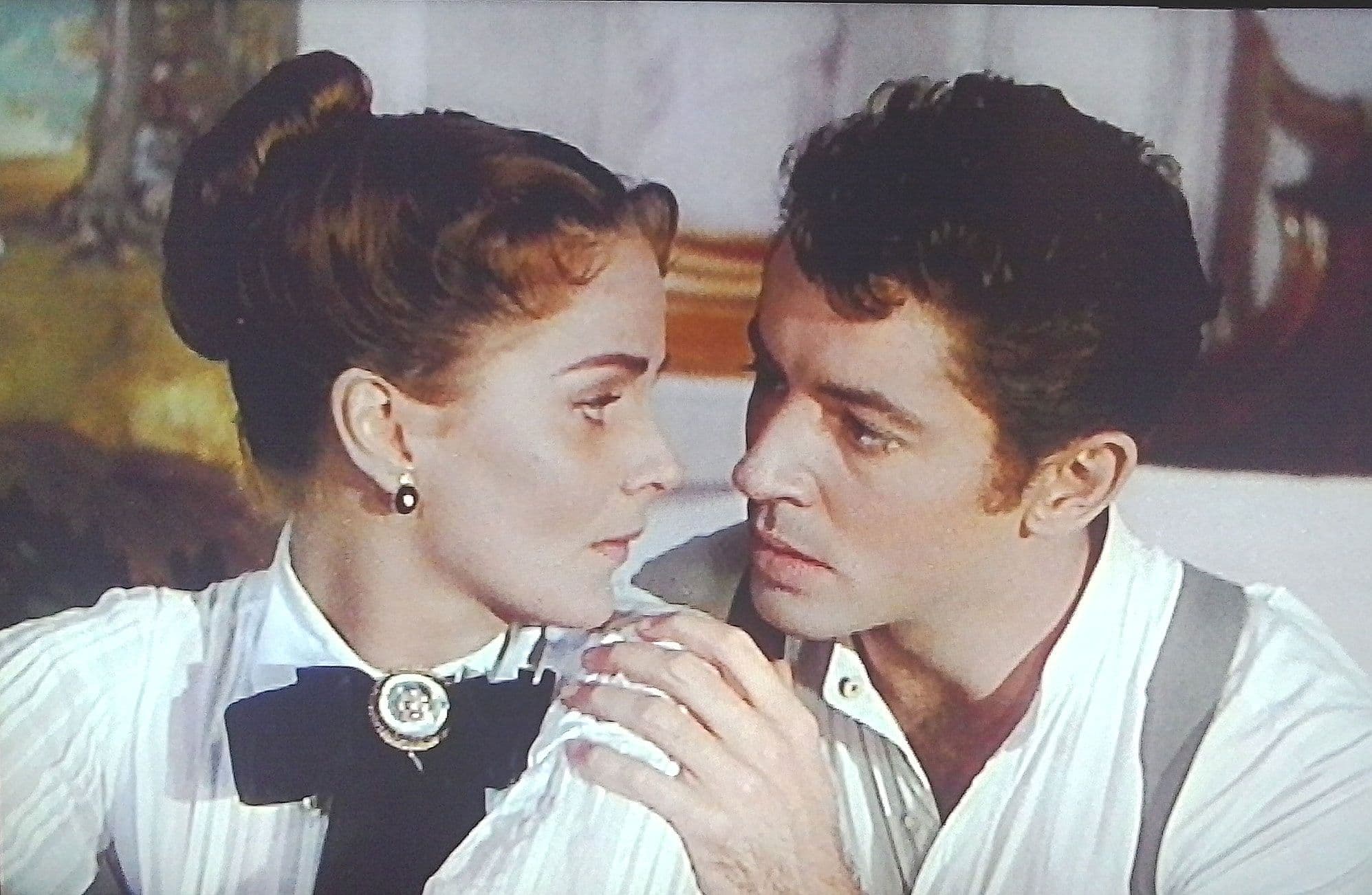
Senso
1954
Rate this movie
Average: 5.00 / 5
(2 votes)
Director
Visconti approaches romantic melodrama in his own unique way, refining its stylistic elements by filtering them through a typically decadent gaze of a Central European intellectual. This is not a mere reinterpretation, but a true analytical, almost surgical, deconstruction, rooted in the aesthetic and moral sensibility of a fin de siècle Europe. His theatrical past, his literary associations (from Thomas Mann to Marcel Proust, passing through the great Italian operatic tradition) permeate every frame, lending the film a veneer of refined disenchantment and a melancholic premonition of decline.
The result is a film of extraordinary formal rigor on the one hand, with its lush succession of exquisitely crafted portraits and refined settings, and on the other, a work that pushes its psychological investigation into a titanic love and cynically dissects its constituent elements. Every frame is a vibrant canvas, a moving painting that enhances the sumptuousness of Technicolor, transforming Venetian palaces and Veneto countryside into living theaters of mortal passions. Visconti does not merely reconstruct an era; he reinvents it through an aesthetic that is at once sumptuous and claustrophobic, where the beauty of the costumes and furnishings conceals moral corruption and impending personal catastrophe. The opening sequence at La Fenice Opera House, with the patriotic tumult interrupting the sublime Verdian harmony (a clear reference to La Traviata, a symbol of a certain romantic idealism that Visconti is about to dismantle), is a programmatic manifesto: the intimate drama inextricably churns within the belly of History, private passion merges and intertwines with the public, foreshadowing the rupture that will be the core of the entire narrative.
The story centers on a Countess's betrayal of her homeland, driven by her love for an Austrian lieutenant, against the backdrop of the Austro-Hungarian War of 1866. But the betrayal of Livia Serpieri (a magnetic Alida Valli, here at the peak of an interpretive maturity that enhances her vulnerability and self-destructive force, recalling the intensity of D'Annunzio's heroines while surpassing their rhetoric) is not merely political; it is primarily a betrayal of self, a self-deception that leads her into an abyss of despair. Her love for Lieutenant Franz Mahler (an ambiguous and fascinating Farley Granger, whose casting of an American actor lends the character an aura of foreignness and an almost pre-Raphaelite physicality, yet concealing a profound emptiness) is a festering flame, an obsession that strips her of all dignity. The man proves to be utterly insignificant compared to the powerful feelings the woman lavishes upon him. Indeed, Franz is the very embodiment of vanity and opportunism, a parasite of others' passion who feeds on Livia's illusions, never experiencing the same intensity or the same desperate sincerity. His superficiality is a cruel counterpoint to the abyssal depth of Livia's self-deception, making the Countess's drama even more agonizing in her solitude and her lucid final madness.
In this sense, Senso is not only a personal melodrama but a meditation on the disillusionment of the Risorgimento, whose ideal dissolves into opportunism and corruption, mirroring the tragic trajectory of the protagonist. Visconti, himself a descendant of the ancient Lombard nobility, observes with a critical and mournful eye the decline of a class, of a world that, though sumptuous, is destined to perish under the weight of its own contradictions and its inability to adapt to new times. The 1866 war, with its Italian defeat at Custoza, is not merely a backdrop, but a parallel to Livia's inner defeat, a metaphor for an Italy that, despite unifying, is torn apart by atavistic vices and lost innocence. The film denounces the rhetoric of Risorgimento romanticism, revealing its most sordid and opportunistic side, no less in politics than in love.
From a novel by Camillo Boito, Visconti, with the help of an excellent array of screenwriters (including the great Tennessee Williams), overturns conventional romanticism and turns it into a kind of psychodrama of velvety refinement. Williams's presence among the screenwriters is particularly evocative: his sensitivity to destructive passions, to the decadence of families and souls, to unconfessable secrets and sexual frustrations typical of American "Southern Gothic," merges with Visconti's refinement and intellectual rigor, creating a unique stylistic and thematic hybrid. It is no coincidence that the director wanted him to amplify that dimension of morbidity and alienation that was already inherent in Boito's work but which he intended to explore with unprecedented depth and cruelty. The adaptation process was laborious, with several hands contributing, from Suso Cecchi D'Amico to Carlo Alianello, and Giorgio Bassani, each contributing their own historical and literary sensibility. But the result is a rewriting that transcends the source, projecting Boito into a dimension of Viscontian lyricism and dramatic intensity that was by no means a given. The choice to shoot in Technicolor, although technically arduous for the time in Italy, proved crucial to accentuate the film's pictorial and sensory charge, making the saturated colors almost a manifestation of the fever consuming the characters.
A rare and precious work of Italian cinema, which marks a fundamental stage not only in Visconti's career, foreshadowing masterpieces on the decadence of an aristocracy and an era like The Leopard and Ludwig, but also in the evolution of cinematic melodrama. Senso is a film that is not afraid to look into the abyss of the human soul and history, unmasking hypocrisies and illusions with a grace and visual power that leave a lasting impression. It is a cinematic experience that endures, like the memory of a sumptuous and painful dream, an elegy for an era and for a feeling that, even in its titanic grandeur, is doomed to shatter against harsh reality, leaving behind only the ruins of a lost passion and a betrayed ideal.
Genres
Country
Gallery






Featured Videos
Official Trailer
Comments
Loading comments...